Phoenix LGBTQ+ Community Suspicious After Sports Tournament Broken Up by Park Ranger, Police
Excessive intervention by police officers and a Phoenix park ranger during an LGBTQ+ sports tournament Sunday night left players uneasy and confused.
LOOKOUT interviewed two-dozen people, from local business owners to volunteers, who said that while Phoenix Pride is welcome, they need to do more than throw a party.

Phoenix Pride is one of the largest LGBTQ+ nonprofits in the state, with a multi-million dollar budget built off organizing events such as the Rainbow Festival and the annual Phoenix Pride Festival held in Steele Indian School Park.
And while their events attract tens of thousands of attendees each year, a growing number of people have expressed concerns about the organization’s business model and relationship with the community.
LOOKOUT spoke with two dozen people over three months who said that while they are happy Phoenix Pride exists and supports what it does, they are disappointed by the organization’s silence at a time when anti-LGBTQ+ rhetoric is spreading across the state and said that Phoenix Pride could do more to engage with the community.
Many of the people LOOKOUT interviewed agreed to speak on the condition of anonymity. Some have received grants from the organization, others do business at the festivals, or are concerned about retaliation from those aligned with Phoenix Pride. To ensure accuracy, LOOKOUT asked for messages, emails, and other documents to support the claims from anonymous sources whenever possible.
Complaints from those interviews varied, from the organization’s use of police officers at the festival—where they serve as both peacekeepers and participants at a booth—to the $35 entry fee for a festival that one person described as “a corporate fairground.”
However, some argue Phoenix Pride is doing what is necessary for the community: creating event spaces and fundraising for local groups through grants and student scholarships (Phoenix Pride has cumulatively awarded over $1 million to students and local LGBTQ+ groups over the past decade).
But even those who support Phoenix Pride took issue with the festival’s ticket cost and expressed an overarching fear of speaking out against the organization.
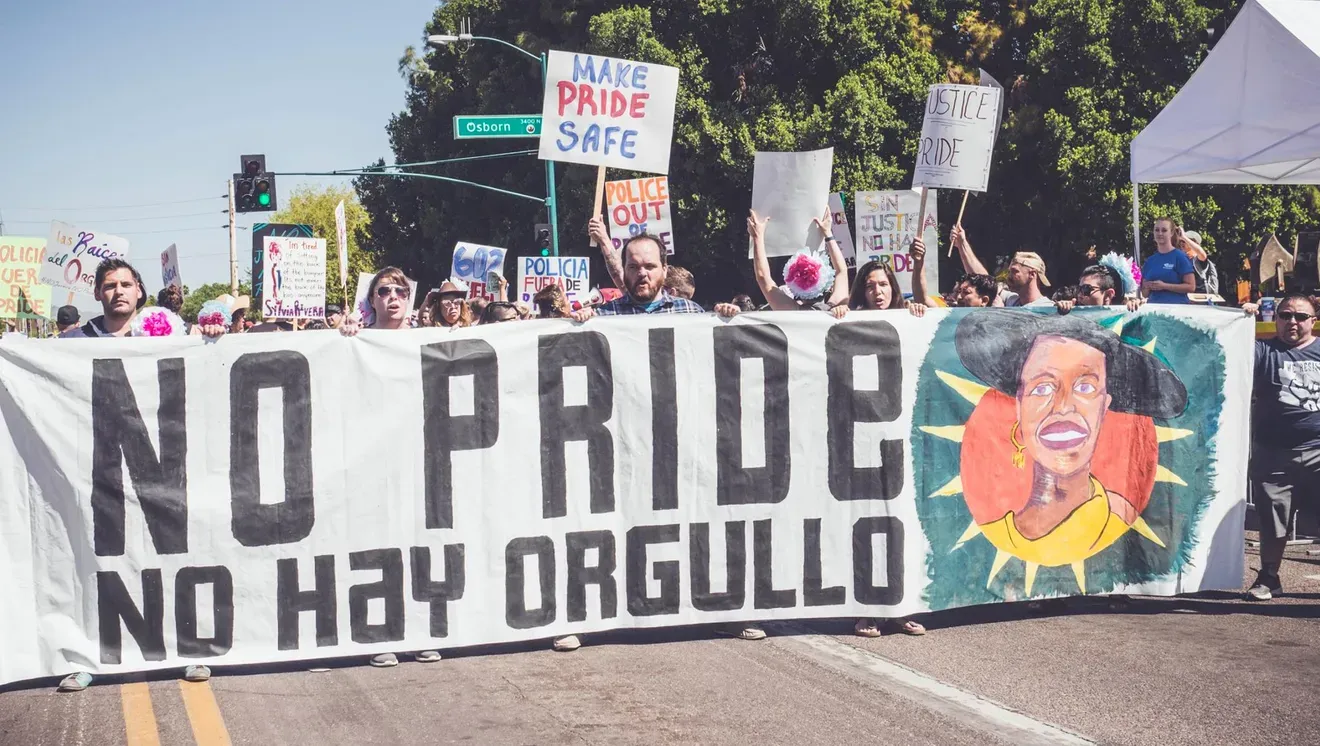
In 2020, after the murder of George Floyd, Phoenix Pride issued a statement saying it would no longer allow police to march in the parade and would use the minimum number of uniformed officers required to enforce liquor laws and monitor the festival.
That policy, according to Phoenix Pride spokesperson Jeremy Helfgot, remains in place. Helfgot said the organization has no choice but to use police officers to enforce laws at the festival.
But community members—particularly immigrants and queer people of color—argue that Phoenix Pride should consider alternatives to police.
Indeed, the City of Phoenix can require organizations to use off-duty police officers to patrol events in city parks or where special event liquor licenses are offered, but city regulations also allow other options, according to the city’s liquor license applications and local codes. On the City of Phoenix Parks website, though, there is a requirement to hire an off-duty police officer when liquor is being served inside any city-owned park.
At the city-owned Heritage Square, where the Rainbow Festival is held, the event rental page says, "The City requires that events serving alcohol must hire an off-duty police officer or a city-approved security company to serve as security while the alcohol is being served.”
Community members say that Phoenix Pride should push back, but Helfgot said that's not a realistic ask: "The city's rules are the city's rules, and the city gets itself into trouble if it starts to make exceptions," he said, adding that Phoenix Pride's leverage is "pretty much non-existent." But he also said the organization wouldn't look into pushing the city into alternatives because they are a partner for the event.
This is not the first time Phoenix Pride has been criticized by community organizers for its use of local police.
A short film created by Trans Queer Pueblo in 2018, calling out Phoenix Pride and highlighting their protest. (Courtesy of Sonix Flores)
In 2017, Trans Queer Pueblo—an immigrant and LGBTQ+ nonprofit group in Phoenix—was asked to march in the parade but took issue with Phoenix Police and members of Border Patrol marching alongside them. They blocked the parade that year. The next year, protesters with Trans Queer Pueblo blocked the parade again, with police called to remove them.
Phoenix Pride called the blockade a “disruption," and a column in The Arizona Republic blamed Trans Queer Pueblo and other migrants for dividing the community, saying, “It's a lost cause to fight those within the community—especially on a weekend meant to celebrate how far they’ve come.”
Others have defended Phoenix Pride’s decision, saying the only way to make progress is to work alongside Phoenix Police and Phoenix Pride, not shut down parades.
One person LOOKOUT interviewed, who requested anonymity, said Phoenix Pride's sole duty is to build community, not “bend over backwards” for a small number of activists.
Helfgot shared a similar sentiment: “In a community as large as Phoenix’s, it’s impossible to make everyone happy.”
He also explained that Phoenix Pride has tried “to engage with representatives from Trans Queer Pueblo following the events of 2017 and 2018. And we were rebuffed at almost every turn,” he said. "We offered them opportunities to speak publicly at our events. On at least one occasion, they accepted the invitation only to withdraw moments before their speaker was supposed to take the podium.”
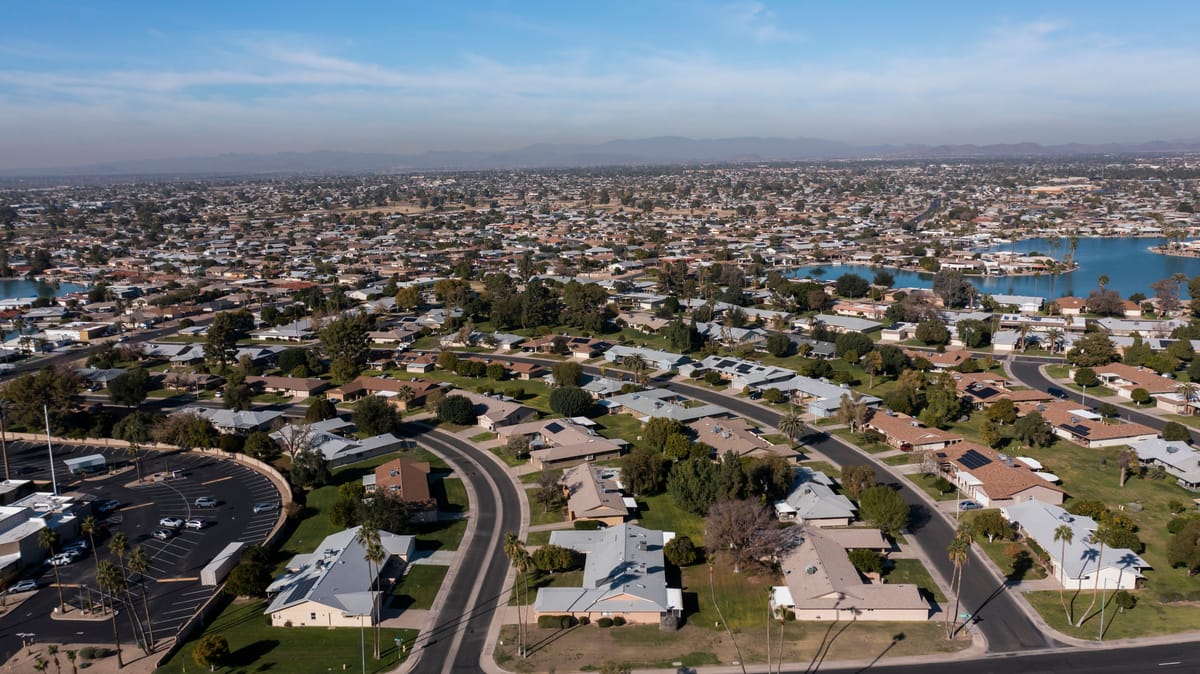
But Trans Queer Pueblo spokesperson Sonix Flores said those conversations felt dismissive, and their relationship has soured. After their organization met with Phoenix Pride to discuss issues related to policing, Flores said the “talks went nowhere.”
In a 2018 interview with The Arizona Republic, Trans Queer Pueblo leader Dagoberto Bailó said, "We engaged with Pride for all of last year in different conversations with their board…and we came to the reality that actually, there is still a lot of systemic racism and xenophobia that Pride needs to work out on its own."
While Helfgot acknowledged that there is a legitimate fear for people of color within the community and their interactions with police, he defended Pride's continued decision: “We are connected in all sorts of ways and that includes, in some ways, the Phoenix Police Department, which does have its own liaison body and its own LGBTQ+ advisory board with which it connects with the community."
In August 2020, Phoenix Pride held a town hall meeting to discuss their role in figuring out solutions with the community alongside a newly established Law Enforcement Advisory Committee. But text messages and email exchanges shared with LOOKOUT appear that people who signed up to volunteer and help advise the committee had not been contacted, and it's unclear if the committee has met since then.
One person who shared their messages with LOOKOUT asked repeatedly over several years when the committee's meetings were, and later assumed Phoenix Pride wasn't holding them.
Other cities have addressed community concerns over police: In Philadelphia, the organization that originally ran their Pride festival, Philly Pride Presents, was dismantled after multiple community groups, including PHL Pride Collective, Philly Black Pride, and the Philly Trans March, called for a different vision that did not include police or a ticketed festival.
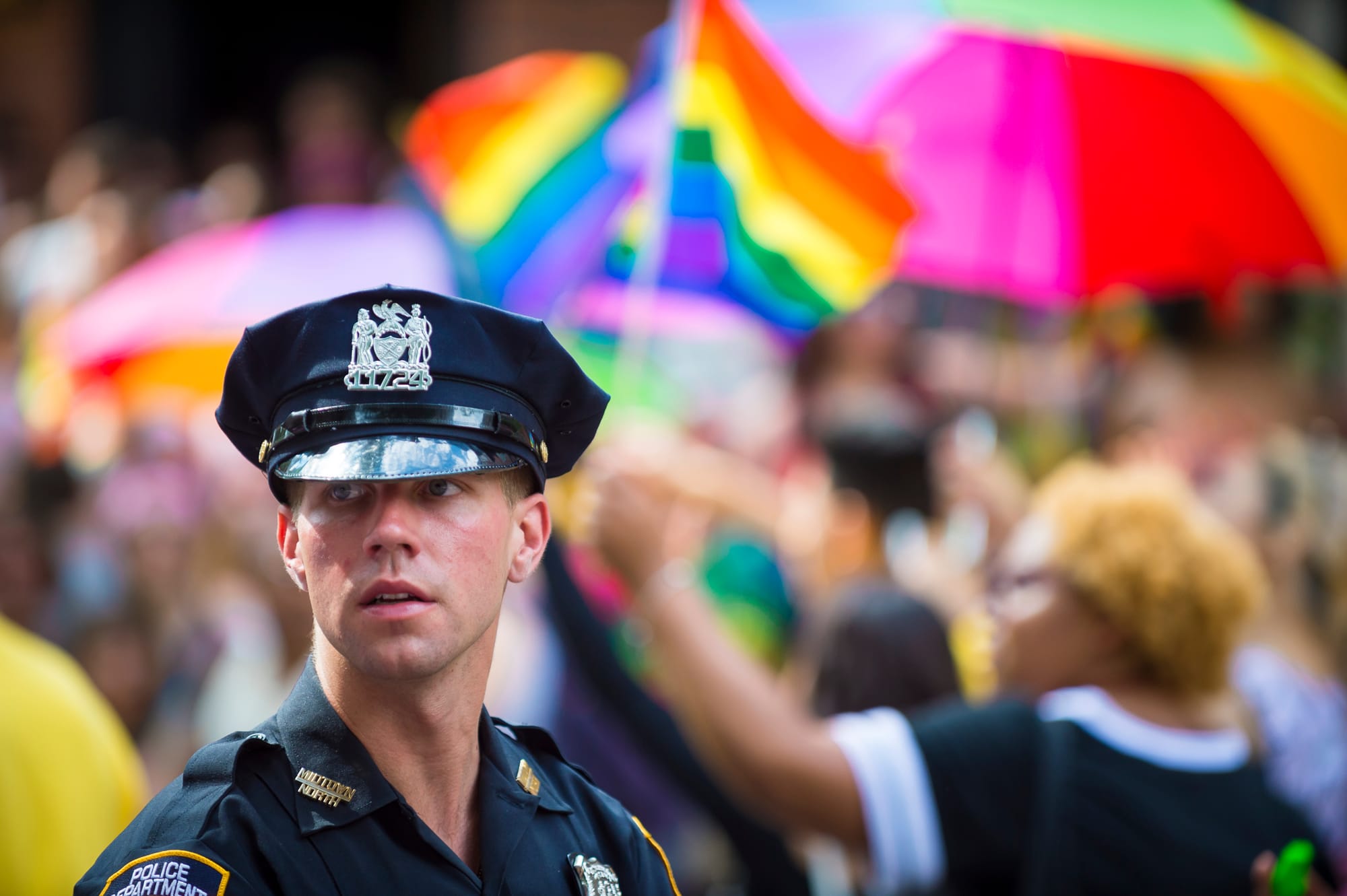
In New York, where there is an internal fraternity of LGBTQ+ police officers, NYC Pride banned the NYPD from the parade and exhibiting a booth until 2025.
Toronto's pride organizers moved to strike local police from both the festival and the parade in the wake of Bruce McArthur, who murdered multiple gay Middle Eastern men for years while police dismissed the community's claims of a serial killer.
Those associated with Trans Queer Pueblo point to these other cities and say Phoenix Pride is missing an opportunity to hold local police accountable, and argued that the purpose of Pride has always been to protest—specifically against police tactics. Phoenix Police have been accused of not investigating hate crimes correctly, been dismissive of the federal investigation into their tactics, and—more pointedly—forcefully removed Trans Queer Pueblo protesters at the Phoenix Pride parade.
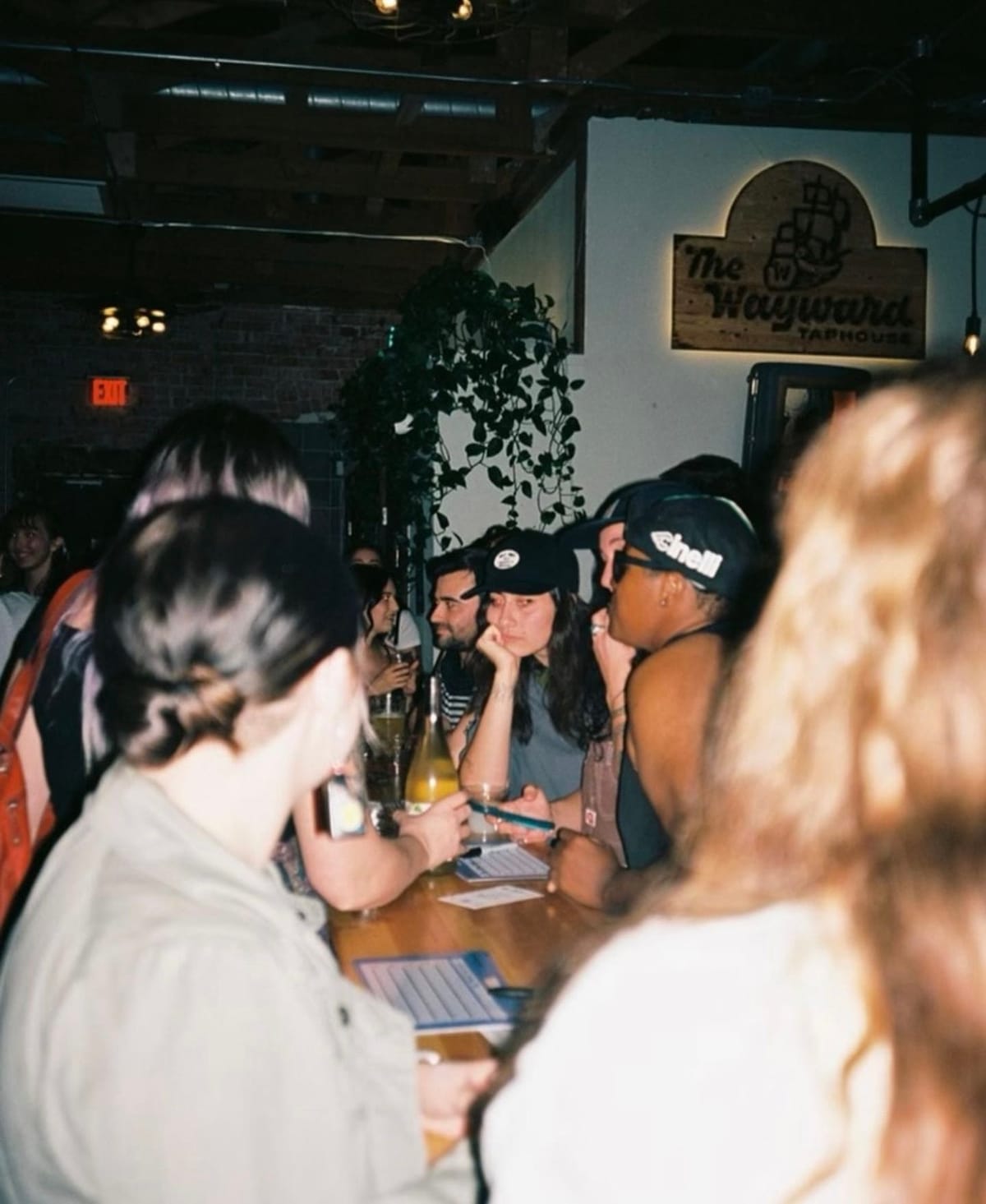
“Stonewall was a riot against police tactics,” said Xyra Flores, who worked at Trans Queer Pueblo and was one of the people forcefully removed by police. Flores said that with current political rhetoric targeting the LGBTQ+ and migrant community, and police being used by far-right politicians to investigating teachers, Pride should be in the front seat driving.
"If pride cannot do that in its actuality in this present sense, then it's just a party, and if it's gonna say that it's just a party, then that's fine,” Flores said. “But let's not pretend then that Phoenix Pride is radical. Let's not pretend that it's a safe place. Let's not pretend that it's for all LGBT people."
Among the frustrations people expressed is Pride’s silence on a number of anti-LGBTQ+ bills passed this legislative session.
When asked what Phoenix Pride’s role should be beyond hosting events, most sources said the organization should act as a voice for them at the state Capitol when harmful bills are proposed.
Helfgot said that as a 501(c)(3), Phoenix Pride must remain politically unbiased and not support or denounce any candidates, but have in the past issued statements against bills before receiving a signature by the governor.
“What Phoenix Pride is not is a social services organization," he said. “When it comes to political advocacy, other organizations do that as their primary function. Phoenix Pride, first and foremost, builds safe spaces, and we do our best to build those spaces and to make them safe and accommodating for everyone.”
But Xyra Flores, the former Trans Queer Pueblo employee and current media spokesperson for the Arizona Queer Politics Project, said Helfgot’s reading of the law is inaccurate.
“You’re able to do certain political work, like applying pressure or writing letters to local politicians," they said. “It’s not one of those things you just can't do. They just don’t want to do it.”
For clarity, nonprofits are restricted from lobbying to some extent, but the rules on that are squishy. In 1976, Congress enacted expenditure limits for nonprofits to lobby lawmakers. For an organization with Phoenix Pride’s budget—about $2.5 million, according to last year’s 990 filings—they could be approved to spend up to $225,000 on lobbying, according to a tip-sheet from the National Council of Nonprofits.
Helfgot said the organization does what it can in the political space and is happy to speak out on issues and advocate for the community.
A source familiar with Phoenix Pride's workings indicated that because Gov. Katie Hobbs said she is committed to vetoing legislation that would oppress or oppose the LGBTQ+ community, the organization has taken a step back from vocally shutting down legislative efforts that they know have no chance of becoming law.
"They don't want to give them any more attention or any more light," the source said.
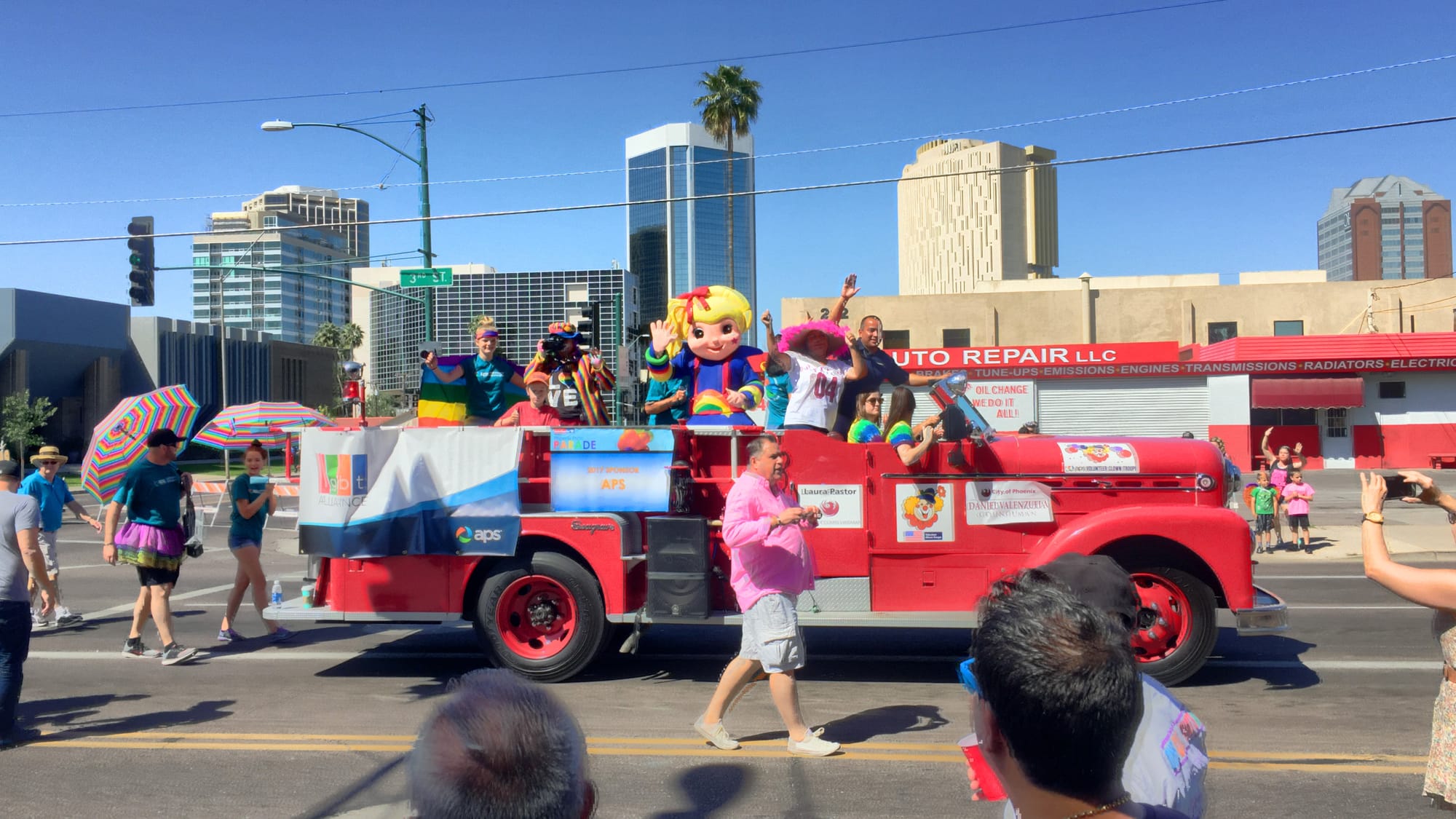
The most consistent concern for the 24 people LOOKOUT spoke to was the fee to attend the Phoenix Pride Festival.
In most major cities, Pride festivals are free to attend, with tickets required for entertainment or access to bars.
Denver Pride's festival has been free for 50 years; Atlanta Pride is donation-based; West Hollywood's block party with vendors costs nothing for attendees; and New York's PrideFest where vendors host on the street is also free.
Phoenix, however, requires a $35 entry fee to view the entertainment as well as access social services through the vendor fair. One community organizer said Phoenix Pride is "paywalling" social services.
Helfgot justified the cost and noted the price is considerably low. He said Pride hasn’t raised ticket prices during inflation, while bringing in headlining and up-and-coming talent.
The ticket price is hardest for families and individuals on low incomes.
One local community leader who does business with Pride disagreed and argued that those who need resources most, such as information on health treatment, or counseling services, may not be able to pay the entry fee: "I work with families who would love to attend Pride, but a $35 ticket cost for each person is out of the question," she said.
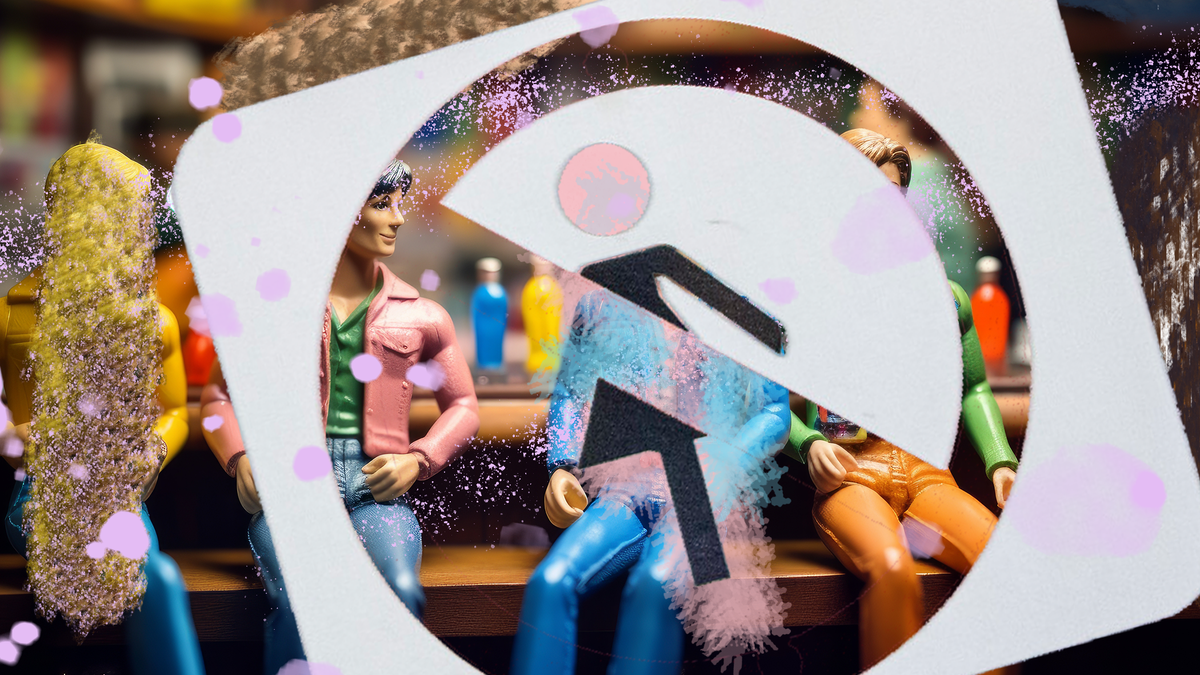
Sherry Maxwell, who lives on disability and wants to attend Pride for the services, specifically, can’t afford to spend the extra $35 while living on a fixed income.
“Because of that, I can't go,” Maxwell said.
Maxwell said Pride offered her a free ticket in exchange for volunteering, but later declined the offer.
“What Pride will say is you can just volunteer and then come for free," said a local performer who has volunteered with Pride for multiple years. “If you twist it into that whole ‘you do something for us and then we'll give you something,’ that's not how it works. You lead by giving because you're a nonprofit, because our people need help. You lead because self-celebration means more than anything else.”
Brad Justice, whose organization Art Culture Arizona is organizing Sunnyslope Pride for its second year to counter Phoenix Pride’s festival, said the entry fee should be eliminated for access to vendors, at the very least.
“Vendors are paying money, and we’re paying money,” he said, adding that community nonprofits who are already struggling to make ends meet, have to come up with as little as $1,000 to have a booth at Pride.
“They’re double-dipping," he said.
Corporate vendors can spend thousands of dollars for a tent, while nonprofits receive discounts. Pride does give a handful of booths to organizations for free, though it’s unclear how many. Justice’s organization was one of those booths in previous years, but was not given the booth again and was replaced with another organization. Phoenix Pride said they rotate the free community booths to different organizations every year.
But Justice said his group can't afford to spend what little money they make on a booth: “I don't see why the community should have to pay for a community event in a city-owned park."
In response to the criticisms about pricing and getting access to services, Helfgot said Phoenix Pride organizes the Rainbows Festival annually, which is free to attend.
“We do provide that on an annual basis and that is a no-cost, no barrier to entry event," he said.
That response cuts deep for Cheryl Klein, a disability rights advocate in the Valley who has slowly stopped attending Phoenix Pride events.
“That breaks my heart to hear them say that," she said. “It truly breaks my heart to hear someone say people should just wait.”
Helfgot acknowledged the criticisms LOOKOUT gathered from the community, but said they are being made by people who would rather not engage in civil discourse and are pushing an agenda:
“Criticism is expected and welcome, and it's the way we improve,” he said. “The real consideration is: How and where is the criticism being delivered? Is it engaging and meaningful, meant to promote change and improvement? Or is it disruptive, meant to spotlight the disruptors and further their agenda, not the community's? Or is it coming from a place of wanting to dig in and help make things better and more appealing for the community? If it's the former, I don't think the community as a whole is interested.”
He added that if people wanted to come to Pride “and be positive and help shape the future of the organization, it’s as easy as a phone call away.”
But that hasn’t been the experience of community leaders, advocates, local performers, and business owners who told LOOKOUT that there is a fear of critiquing Pride.
From members of Trans Queer Pueblo and other sources, Phoenix Pride's dismissal of requests to withdraw police prove—to them—that Pride isn't a willing listener, and would rather engage in "respectability politics," as Xyra Flores described.
"We sat down with a bunch of people from the Phoenix Pride Board and their volunteers in order to talk about our experiences, but also to have them sort of understand why it's so important for us that police not be present at Pride," said Flores, adding that the conversation ended up being one of "both-sides" where police are both good and bad. "The issue is that any police presence at this event is a possibility of an undocumented person being detained or deported. If they cannot accept this reality, there's no further conversation that can be had."
One local business owner who defended Pride's decision to keep police in some manner also said he refuses to critique them publicly about ticket prices or booth rentals due to his own partner getting swatted down and ignored after critiquing Pride for not using more local talent on its main stage.
He suggested Pride to hold a semi-regular town-hall to discuss community issues where all would be welcome: “They need to have, like, a big community meeting and be open to listening,” he said. “Have it like at some big auditorium where people could actually speak.”
One disability rights social worker—who requested anonymity—said when she expressed concerns about the festival’s accessibility, such as not enough cooling centers and quiet rooms (Pride Festival has one of each), she was “brushed off.”
And as a wheelchair user, Cheryl Klein said she has consistently brought up accessibility issues at Phoenix Pride’s booth at the festival, but has only “received smiles and nods.”
She said she even offered for Pride members to use a wheelchair to navigate the festival. But most concerning was when she was told she could rent an electric mobility unit elsewhere for $50, instead.
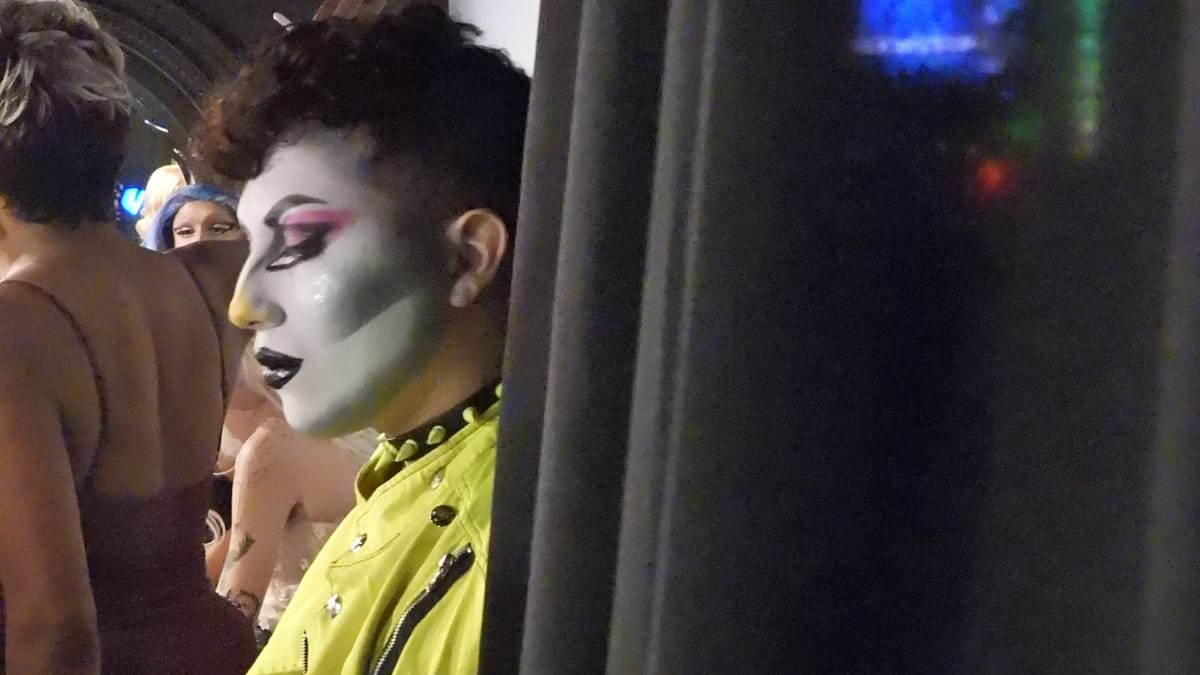
"I was just shocked," she said. "I have to pay to get in, and then you're telling me I have to pay for that?"
Though, there is no mention of scooter rentals on the Pride website, and its unclear if that offer was made by Pride or a third-party vendor.
To the organization's credit, majority of the sources LOOKOUT spoke with said that Phoenix Pride has made significant changes to represent the community in accessibility, their board makeup, and how they do outreach at their events. But only one person said they should stay out of advocacy—almost all the others said the organization needs to evolve past throwing parties.
“We are in unprecedented times right now,” Klein said. “Pride is inherently political. They need to be more than what they are.”
An earlier version of this article misstated Phoenix Pride's advocacy as only happening after bills are passed. In past years, Phoenix Pride has issued statements and other forms of community activations before anti-LGBTQ+ bills have passed in previous legislative session. This story has been updated to reflect that.
LOOKOUT Publications (EIN: 92-3129757) is a federally recognized nonprofit news outlet.
All mailed inquiries can be sent to 221 E. Indianola Ave, Phoenix, AZ 85012.